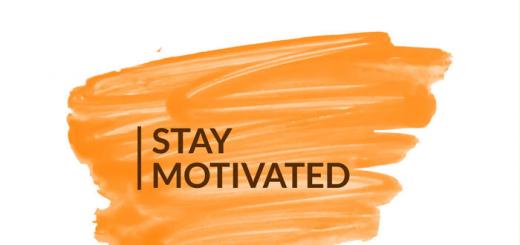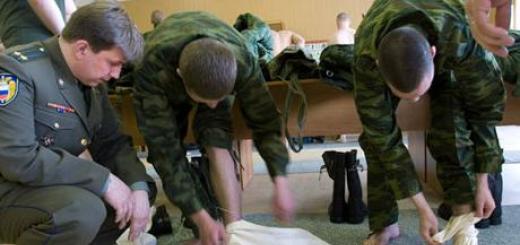Class hour "Learning to love yourself"
Target: encouraging schoolchildren to comprehend their capabilities, qualities and place among people.
Tasks: Understanding the essence of the concept of "self-esteem". Identification by schoolchildren of their own contradictions and problems on the way to gaining adequate self-esteem.
Modeling actions to implement a real self-assessment.
Conduct form:problematic dialogue.
Preparation stage.
Formation of questions for discussion:
- How do you understand what self-esteem is?
- Why is self-assessment important?
- Do you think that your own assessment of yourself coincides with the opinions of others?
- What is the danger: a) underestimated; b) inflated self-esteem?
- Whose opinion about yourself do you consider the most significant?
- How to increase self-esteem?
Formation of a bank of problem situations.
Development of situational tasks with students and preparation of diagnostic materials to support the process of modeling their actions to carry out a real assessment of their capabilities.
Quote on board: "A man is like a fraction, the numerator is what he is, and the denominator is what he thinks of himself."(L.N. Tolstoy)
Implementation stage
Classroom teacher:Dear children, the age in which you are now is very important and at the same time difficult. The years between childhood and adolescence are called adolescence. New sensations appear, worldview changes, new problems arise. We often rush time: we would rather become adults, earn our own living, create our own family, make our own decisions, become independent. But you can't suddenly become adults. The process of turning a child into an adult lasts for years - on average from 12 to 20 years. And this time is given so that we understand a lot, learn a lot, experience a lot and as a result acquire all the qualities inherent in an adult.
Entering the world of growing up, you need to be prepared for the difficulties that you will have to face. We must learn to deal with these difficulties. And if you know what to expect from this world, then it will seem amazing and beautiful to you.
If, during a pleasant journey, an abyss crosses your path, there is no need to fall into it. The abyss can be bypassed. But for this you need to know the detours. It is the same in life: it is impossible to completely avoid abysses-problems, but they can be solved intelligently, avoiding serious bruises. Let's rephrase the well-known proverb: "A smart man learns from his mistakes, and a wise man learns from others." Let's try to be not only smart, but also wise. It is unreasonable for everyone to step on the same rake and suffer defeat.
What are these dangers, the abyss, into which most adolescents fall on the way to adulthood?
The most dangerous and deepest abyss is the feeling of self-doubt, or even the feeling of one's own inferiority. It is terrible to feel inferior to others, to feel that no one likes you, that you are a loser, unlucky, that you have a disgusting appearance, that you do not have such abilities as others. Many teenagers believe that they are not worth anything at all as people. The oppressive feeling of inferiority is the deep abyss into which many teenagers fall. This problem gives rise to many other problems.
First of all, let's make it clear to ourselves: there are no people without flaws, and there are no perfect people. Every person has pluses and minuses. You can always find something to complain about, something to laugh at, as well as something to be proud of, something to respect.
Stage one. Diagnostics.
Classroom teacher: To begin with, I offer you a small test "Are you satisfied with yourself?" (first, a test with questions is distributed, and upon completion of work with it, a “key” for self-assessment of the result).
Test "Are you satisfied with yourself"(S. Stepanov)
10.
Calculate the number of points scored, decipher the resulting amount.
Over 120 points. You are extremely pleased with yourself. It seems, however, that you are pretty lacking in healthy self-criticism, the ability for real self-esteem. Try to understand and evaluate this circumstance with the help of friends and relatives.
From 60 to 120 points.You are quite confident in your abilities, but you are completely spared from extreme complacency and narcissism.
Less than 60 points. You don't like yourself. Pull yourself together and gain confidence. Look around and think - it is possible that you simply underestimate yourself.
Classroom teacher: The result obtained by each of you is the starting point of our communication. Today we have to discuss the following questions (points to what is written on the blackboard).
- How and from what does a person's self-confidence develop?
- Why are there people who are confident and not very or not at all?
- How can this affect life success?
- This is the subject of our discussion today.
Stage two. Concept definition.
Classroom teacher: In order to comprehend any concept, one should try to define it. Let's try to do it together in the "open microphone" mode.
Possible judgments:“This is some kind of opinion about yourself”, “This is an underestimated or overestimated sense of one’s importance”, “This is a lifesaver in difficult situations”, “This is a way to protect yourself from the opinions of others”, “This is a springboard for success”.
Classroom teacher: Thank you, the judgments are very interesting. But in the psychological dictionary, self-esteem is interpreted as a combination of three components (listing them, at the same time forms a diagram on the board):
to himself
Self-esteem -
A place among people is an opinion of their capabilities and
Man about qualities
Relationships of a person with others, his criticality, exactingness towards himself, attitude to successes and failures depend on self-esteem. Low self-esteem is a psychological complex of a loser. The first phrase about failure in people with low self-esteem is “Well, what could I do?”. And there is nothing good in high self-esteem. Falling from a "pedestal" erected to himself, a person can be very disappointed and offended by the whole world.
Stage three. Identification of problems.
Classroom teacher: Why don't we like ourselves?
Reason one: 80% of teenagers are unhappy with their appearance.
They seem to be unattractive and repulsive. They consider themselves either too thin or too fat, they do not like their lips too thin or their nose too long. They think about it most of the time.
Most often, girls are dissatisfied with their appearance. And now such a girl is walking down the street: her eyebrows are knitted, her lips are pursed, her shoulders are lowered, her eyes are furrowed. Who would want to communicate with her?
If you have a habit of showing disregard for your personality in this way, try to feel the power of transformation.
Stand in front of the mirror, straighten your shoulders, raise your chin, shake your hair, throwing off all the unpleasant sensations, and smile at yourself.
Find attractive features in your appearance - and they are sure to be - and be happy with what you have: a kind look, a charming smile, brown eyes, an easy gait. What could be more stupid than worrying about the fact that your eyelashes are not as thick as those of a neighbor? Is it worth it to worry and go crazy, dreaming that your nose will become a couple of millimeters shorter? Being too preoccupied with your appearance can make you too shy or too rude. But it will be easier for you to experience this state if you know for sure that most of your peers experience the same feelings towards themselves to a lesser or greater extent, and that this state will soon pass. Unless you're going to get hung up on it.
Reason two: many young people feel stupid.
This also causes a negative attitude towards oneself. Many schoolchildren, due to self-doubt, cannot overcome fear and prefer to remain silent when they are asked in class, even if they know the correct answer.
Gradually they begin to think that everyone thinks they are stupid. The more often a student gets bad grades in school, the more he despairs and withdraws. It turns out a vicious circle. Failure to answer in class leads to even greater underachievement. Which makes him laugh even more in class. And this discourages the last desire to try. Which leads to even more failure. In the end, a person begins to consider himself worthless and incapable of anything, and that he will remain a failure for the rest of his life.
And the feeling of insecurity and own inferiority will surely make a person a loser.
First of all, remember this: a truly stupid person will never realize his stupidity and therefore will never have complexes about it. Therefore, if you doubt your own abilities, then you are no longer stupid. And the amount of knowledge will depend on your diligence and curiosity. Do not want to look stupid - read more, watch developmental and educational programs on television, communicate with smart and interesting people. If you have low self-esteem and you are only busy with berating yourself all the time, do you have enough attention and energy to solve the problems you are facing?
Never be offended by a person who calls you stupid. Such a person may be dumber than you. In response, calmly, with a smile, say: “Where can I go before you!” Let him think what you meant to say.
Your parents may also inadvertently call you not very smart. Do not be offended by them and do not take these words to heart. Adults are people too, they get tired and lose their patience. Your underachievement can upset them and piss them off.
In addition, most parents want to see their children as the smartest and most capable. And this, as you know, is impossible. Try to please them with something else: help in the kitchen, wash your shoes or dust off the windowsills.
Another reason that causes a feeling of inferiority in adolescents is money. It is believed that a rich family is better than a poor one. The cult of things is highly developed among the youth. To be popular, you need to dress a certain way, have certain things. This problem remains relevant for modern society. Children from poor families often feel insecure.
Beauty, intelligence and money are the three qualities most valued in modern society. The absence of even one of these components of well-being leads teenagers to despair. Life seems failed, happiness impossible.
A person does not like himself not because he is bad, but because he does not know how to accept himself as he is. A person who has not learned to live in peace with himself begins to conflict with the whole world.
How to love yourself?
Test exercise "My self-esteem"(G.G. Filippova)
Carefully read the words describing individualpersonality traits(character traits):
Make two columns of 10-20 words each. In the first column - let's call it "My ideal" - put the words that characterize your ideal. In the second - let's call it "Antiideal" - words denoting features that the ideal should not have. From the first and second rows, choose the traits that you think you have. At the same time, the choice must be made according to the “yes-no” system: do you have this feature or not, regardless of the degree of its severity.
Processing the results and output
Divide the number of positive traits that you attribute to yourself by the number of words placed in the "My ideal" column. If the result is close to one, you are most likely overestimating yourself; a result close to zero indicates underestimation and increased self-criticism; with a result close to 0.5 - a normal average self-esteem, and you perceive yourself quite critically.
In the same way, conclusions are drawn on the basis of a similar comparison of the selected negative qualities with the “Antiideal” column. Here, a result close to zero indicates an overestimated self-esteem, a result close to one indicates an underestimation, and a result close to 0.5 indicates normal.
Game...Praise me
Option 1. Players are given slips of paper on which they write their name. Then, after collecting and shuffling the sheets, distribute them to the participants. The guys should write what they like about the person whose name they received, and then bend the sheet so as to close what was written (“accordion”), and pass it on to another until everyone leaves their entry. You don't need to subscribe. Collect the papers and read aloud what is written on them. (Be sure to review each description before reading to make sure it's positive.) Someone who has received praise is sure to say, "Thank you."
Option 2. The players stand in a circle. Each participant, in turn, tells his neighbor on the right what he likes about him. Then the same is done, but in relation to the neighbor on the left
The heart of the class
Cut out a large heart from red cardboard.
The teacher says, “Do you know that our class has its own heart? I want you to do something nice for each other now. Write your name on a piece of paper and fold it up so that everyone can then draw lots with someone else's name. If someone pulls out his own name, he must change the piece of paper.
Let everyone come up with a friendly and pleasant phrase about the one whose name he drew by lot, and write it down with a felt-tip pen on the “heart of the class”. The teacher should supervise what the participants are going to write down. Hang the heart on the wall so that it can be approached from all sides. The heart of the classroom can be a wonderful decoration of the room.
Test "Are you satisfied with yourself"(S. Stepanov)
- Do you dream of being born again and starting over? (Yes - 4, no -16).
- Do you have a hobby? (Yes - 18, no - 5).
- When your work is not going well, are you able to say, “This can only happen to me”? (Yes - 6, no - 12).
- Do you rejoice when you find out that someone is jealous of you? (Yes -16, no - 2).
- Does your self-esteem suffer if someone refers to you as a boring, unsympathetic person? (Yes - 3, no - 12).
- Do you find any comfort in knowing that your friends have been in the same trouble as you? (Yes -18, no - 5).
- Do you worry about making sure something is going much better without your participation? (Yes - 2, no - 16).
- Do you often get the desire to win a large amount in the lottery? (Yes - 6, no - 20).
- Are you very worried when you find out that your friends have purchased some expensive item? (Yes - 1, no - 12).
- Do you like to speak out in front of a lot of people?
listeners? (Yes - 16, no - 3).
Test "Are you satisfied with yourself"(S. Stepanov)
- Do you dream of being born again and starting over? (Yes - 4, no -16).
- Do you have a hobby? (Yes - 18, no - 5).
- When your work is not going well, are you able to say, “This can only happen to me”? (Yes - 6, no - 12).
- Do you rejoice when you find out that someone is jealous of you? (Yes -16, no - 2).
- Does your self-esteem suffer if someone refers to you as a boring, unsympathetic person? (Yes - 3, no - 12).
- Do you find any comfort in knowing that your friends have been in the same trouble as you? (Yes -18, no - 5).
- Do you worry about making sure something is going much better without your participation? (Yes - 2, no - 16).
- Do you often get the desire to win a large amount in the lottery? (Yes - 6, no - 20).
- Are you very worried when you find out that your friends have purchased some expensive item? (Yes - 1, no - 12).
- Do you like to speak out in front of a lot of people?
listeners? (Yes - 16, no - 3).
Accuracy, carelessness, thoughtfulness, receptivity, pride, rudeness, cheerfulness, caring, envy, shyness, vindictiveness, sincerity, sophistication, capriciousness, gullibility, slowness, dreaminess, suspiciousness, vindictiveness, perseverance, tenderness, ease, nervousness, indecision, intemperance, charm, resentment, caution, responsiveness, pedantry, mobility, suspicion, cordiality, swagger, rationality, determination, self-forgetfulness, restraint, compassion, modesty, patience, cowardice, enthusiasm, perseverance, compliance, coldness, enthusiasm.
Accuracy, carelessness, thoughtfulness, receptivity, pride, rudeness, cheerfulness, caring, envy, shyness, vindictiveness, sincerity, sophistication, capriciousness, gullibility, slowness, dreaminess, suspiciousness, vindictiveness, perseverance, tenderness, ease, nervousness, indecision, intemperance, charm, resentment, caution, responsiveness, pedantry, mobility, suspicion, cordiality, swagger, rationality, determination, self-forgetfulness, restraint, compassion, modesty, patience, cowardice, enthusiasm, perseverance, compliance, coldness, enthusiasm.
Stage two. Definition of the concept Self-esteem is a person’s opinion about himself His abilities and qualities Place among people
Stage three. Identifying problems 1. 80% of teenagers are unhappy with their appearance. 2. Many young people feel stupid. 3. Money.
Exercise "My self-esteem" Divide the number of positive traits that you attribute to yourself by the number of words placed in the "My ideal" column. If the result is close to one, you are most likely overestimating yourself; a result close to zero indicates underestimation and increased self-criticism; with a result close to 0.5 - a normal average self-esteem, and you perceive yourself quite critically. In the same way, conclusions are drawn on the basis of a similar comparison of the selected negative qualities with the “Antiideal” column. Here, a result close to zero indicates an overestimated self-esteem, a result close to one indicates an underestimation, and a result close to 0.5 indicates normal.
Sometimes your inner voice will whisper to you: “You are a loser, you are worthless, everyone laughs at you, you always fail, you are not beautiful, you are not like everyone else, you will be a loser all your life ...” Do not believe this!
R. Kipling's poem "If" Oh, if you are calm, not confused, When they lose their heads around, And if you remain true to yourself, When your best friend does not believe in you. And if you know how to wait without worry, You won't answer lies with lies, You won't be evil, becoming a target for everyone, But you won't call yourself a saint either. ... And if you can be yourself in the crowd, Keep in touch with the people under the king And, respecting any opinion, Do not bow your head to rumors, And if you measure the distance In seconds, starting on a long run, - The earth is yours, my boy, property! And what's more, you're human!
Class hour on the topic "Learn to be friends"
Purpose: formation of the concept of the most valued human virtues, the meaning of friendship and those qualities that need to be developed in oneself in order to be worthy of friendship.
1. Teacher: Guys, we have an interesting and serious topic of the classroom. And what are we going to talk about, try to guess. Hint: the definitions “strong”, “long”, “real” are suitable for this word. And this word is - (friendship)
- Today our class hour is dedicated to talking about friendship. Where does friendship begin? This is also sung in a song about friendship. (With a smile) Slide 2. When a person smiles, he is inviting, his mood rises, and you also want to smile in response. Smiling, we show sympathy, trust, and this is where friendships begin.
Come on, friends, let's smile at each other,
Bring smiles to your guests!
Ready to chat! Then - to work!
I wish you good luck!
- Today our smiles should shine like the sun. The emblem of our meeting will be this beautiful, kind sun.
2. Please come out in a circle. Standing, we greet each other.
Hello my friend! (right hand forward)
How are you? (right hand on neighbor's shoulder)
Where have you been? (right hand behind neighbor's ear)
I missed! (hug yourself)
You came? (hands to the side)
Good? (hug)
3. - Friendship was spoken about at all times, poets and writers, scientists and philosophers wrote about it and expressed their thoughts. For example, the philosopher Socrates wrote: “No communication between people is possible without friendship.” (Slide 3) And we also talked about friendship, and today we will continue this conversation.
Slide 4. Imagine that you are walking along the road and there is a stone on the way that says:
“If you go to the left, you will find friendship. If you go to the right, you will lose a friend.
In life, we always choose which path to follow, how to act, and our choice characterizes ourselves. What and why will you choose?
To do this, two posters are hung out in opposite sides of the classroom. On one it is written - "Friendship is not needed", on the other - "Friendship is needed." Students are encouraged to determine their position and prove it.
Slide 5. - Take care of friendship in your hands and pass it on to each other. Feel what friendship
- to the touch;
- to taste;
- what color is it?
- what weather it can be compared with.
I write the conclusions of the children on the board.
Conclusion: friendship gives us pleasant sensations.
5. Slide 6. The game "Find your own kind"
The students stand in a circle. I ask them to close their eyes and not talk to each other. I pin small drawings on their backs (a sun, a cloud, a flower, a heart, and one drawing of a thundercloud).
Assignment: to find a "like one" and take their places at the tables. It is impossible to talk about it.
I draw your attention to the fact that one student remained.
- How does the one who was left alone and without friends feel?
There is an old but true proverb: "In order to have friends, you must be a friend." Indeed, it is very important to be able to make friends yourself. This is what we will talk about today.
6. Actualization of knowledge and ideas on the topic.
- So, the key word of our conversation is friendship. Write it down in your notebooks.
So, we found out what is needed. I want people to be friends with each other, understand each other and be happy. Questions of friendship have always worried people on Earth, so even the International Day of Friends appeared, which is celebrated annually on June 9 (Slide 7). This is still a young holiday. Not all people know about it. But every year more and more people celebrate this day. What can you do on Friends Day? (On Friends Day, you can call a friend, write him a letter, visit a friend, give him a gift.)
- So that you do not forget about this important holiday, there is a reminder in your notebooks.
Introduction to the concept of friendship.
- In order to talk about friendship, you need to understand what friendship is (Slide 8). People have been thinking about this question for a long time and found out what friendship is. Try to work together within your group to complete this statement.
Brainstorm:
Friendship is ______________________________________________________
Let's hear what you got.
- Now compare your statements with the interpretation of this word from the Explanatory Dictionary of S. I. Ozhegov (Slide 9, click)
"Friendship is a close relationship based on mutual trust, affection, common interests."
S. I. Ozhegov "Explanatory Dictionary"
Conclusion: You are not mistaken in your judgments. It's great that you understand what friendship is.
The concept of a true friend.
- So, guys, we found out with you what friendship is. But without whom friendship cannot take place?
- Of course, there is no friendship without friends. What should a true friend be like? That is the question? I suggest you watch a short film. (Slide 10)
- Do you think the main character of the film is a true friend? (No, he only used a friend, and a true friend should give, not take).
What should a true friend be like? (Slide 11) I invite you to imagine that there is a magic shop in which there are unusual things: patience, sense of humor, sensitivity, kindness, respect, compassion, etc. Acquire the qualities that you think a true friend should have.
- Probably, your friends also want to see the same character traits in you.
- In your notebooks there are layouts of hearts. You now know what qualities a true friend should have. Which of these qualities do you have? Please write it down. (Slide 12)
Discussion: "I can be a true friend because I am."
- In each of you there are qualities inherent in a friend. That is why we have friendly relations in the class. But in the magic shop there are qualities (I'm posting on the other side of the board) that you did not choose. Why? (Such qualities should not have a real friend).
- On the pieces of paper, write what you would like to change in yourself or completely get rid of unworthy qualities so that you have more friends. Your entries are only for you, no one will read them.
- By throwing these leaves into the urn, we will believe that we can eradicate in ourselves what we admitted only to ourselves. (Students write, fold and throw in the trash).
7. Slide 13. Creative task "Looking for a friend"
- Any person, perhaps, dreams of having a true friend. Some of you are probably already lucky, and you have such a friend. Someone has a lot of acquaintances and friends, but it is difficult to choose a person from them who could be proudly called a friend. And someone, perhaps due to shyness or isolation, feels lonely and bitterly admits to himself that he has no friends. But in any case, a true friend does not hurt anyone.
Now I will become the editor of a special free classifieds newspaper. It's called "Looking for a Friend". Each of you will place an ad there looking for a friend. There are no word or letter size restrictions on this ad. Any form is accepted. You can set out a list of requirements for a friend candidate, the whole set of qualities that he must possess, or you can draw his portrait. You can tell about yourself. In a word, make the announcement the way you want. But you should only make sure that it is your ad that attracts attention among others.
Take sheets of paper, pens, pencils and start your ad. Preparation time - 5 minutes.
Ads do not need to be signed.
- Time is up. Who wants to read your ad? When you leave our meeting, please post your notices on the Notice Board.
- Did you like all the ads?
- Was it difficult to write about yourself?
- Time is up. Let's put our ads on the table. Now everyone silently reads them and on the 1-2 ads they liked that attracted your attention, and you are ready to contact its bearers, puts a tick on the side.
8. Games.
Slide 14. Now we will play the game "Do I know my friend (my girlfriend)?" The game involves a couple of friends. I will ask questions. One of the friends will write the answer on the board, then we will listen to the other. Compare the answers and see if they know each other well.
Favourite hobby. (What do you like to do in your free time?)
What circle, section does he attend?
What time of the year is his favorite?
What sport do you like?
What lesson do you like at school?
What books does he like to read?
What animal would you like to have (has) at home?
- Well, well, we see, he knows well how his friend lives, what his interests are. Let's check how things are going.
Energizer "Know a Friend"
Children form 2 circles. Holding hands, they move in different directions with their eyes closed. On the “Stop” command, the one who is standing inside the circle must guess the name of the one who stands opposite him in another circle, not by touching him with his hands, but by his voice. (It is necessary to say the phrase "Friendship is important to everyone."
9. Rules of Friendship
- Well, we have worked very hard, we have already learned a lot. But the most important thing is that there will be no friendship between people if we ourselves do not follow certain rules, the laws of friendship (Slide 15). What should people observe, how should they treat each other? Let's make a set of basic laws of friendship.
- To do this, get acquainted with the list of rules and select those that you think must be followed, observed in order to be a good friend, and friendship is real.
Write them on your palms.
Laws of Friendship
Help a friend in need.
Don't laugh at your friend's shortcomings.
Don't fool your friend.
Be polite.
Be careful.
Stop a friend if he does a bad deed.
Be responsive not only in sorrow, but also in joy.
Do not be greedy.
Don't be a traitor.
Treat people the way you would like to be treated.
Know how to admit your mistakes and do not be offended by fair criticism.
Do not envy.
Know how to keep secrets.
Take care of your friends.
Dare to forgive.
Try to be sincere.
Be tolerant of people who are not like you.
Let's hear what rules you have chosen for yourself. (Children read the chosen rules).
- Conclusion: The rest of the rules will also be useful to you. By following these rules of friendship, you will never lose a friend. And so that the emblem of our class hour glows longer from the smiles that we gave each other during communication, attach your “hand of friendship” to the sun. (Slide 16)
Final part.
- So the class hour came to an end. You have a long road ahead of you. And let only true friends meet on your life path.
Now stand in a circle, hold hands - these are the hands of a friend. Put your hands on your shoulders. This is the shoulder of a friend that you can lean on at a difficult moment.
Who next feels the shoulder
He will never fall
In any trouble will not be lost.
And if he suddenly stumbles,
Then a friend will help him get up,
Always his reliable friend
Lends a hand in trouble.
2. Reflection. Summing up the work
Slide 16. Reflection "Everything is in your hands"
Circle your left hand on a piece of paper. Each finger is some kind of position on which you need to express your opinion by painting the fingers in the appropriate colors. If some position does not interest you, do not paint.
Big - for me the topic was important and interesting - red.
Index - learned a lot - yellow.
Medium - it was difficult for me - green.
Nameless - I was comfortable - blue.
Little finger - not enough information for me - purple.
Rate yourself. The process of self-knowledge.
- Guys, look what we got. We know what friendship is, what a “true friend” is, we have developed a formula for friendship, and compiled a set of laws of friendship. It remains for us to find out if we can be real friends (slide 9).
- On your desks there is a sun with rays. In the center we see the inscription "I can". Think about what you can do for your friend. Write about it in a ray. Attach faces to the sun, you will get your own portrait. (Children fill in the rays, attach them with double-sided tape to a sheet with the sun, voice their answers).
13 PAGE \* MERGEFORMAT 14715
[Enter text]
Municipal state educational institution
"Komsomol secondary school"
Odessa municipal district of the Omsk region
Methodical development
class hour
"Knowing Yourself"
Prepared by: Kukushkina Antonina Vasilievna,
physics and mathematics teacher
highest qualification category
MKOU "Komsomolskaya secondary school"
2014
Explanatory note p.3-4
Chat hour scriptc tr. 5- 11
1. Opening speech "Do we know ourselves?"
a) exercise "Recognition"
2. Interactive conversation on the topic "Why do we need self-assessment?"
4. "Knowing yourself" p.6-10
a) Test - the game "My place in educational affairs";
b) exercise "Getting to know yourself";
c) exercise "Who am I?";
d) exercise “Light tell me a mirror”;
e) fatness test;
f) exercise "What is in my name to you?";
g) exercise "I am in various life roles";
h) exercise "My portrait"
5. Final word p.11
6. Summing up (reflection) p.11
Literature p.12
Appendix p.13
Explanatory note
The methodological development “Knowing Oneself” contains the forms and methods of educational work of the class teacher to develop and support the individuality of each child, which manifests itself from birth.Individuality should be understood as singularity, originality, dissimilarity of one person to another.“Children are flowers. It is impossible ... to demand that all flowers smell the same ”(V.I. Doroshevich). An important sign of human individuality is the activity of the creative creative personality of a person. In order for a child to become an individual, upbringing in a complex is necessary: families in the first place, schools and society. Omain goal education - to promote the mental, moral, emotional and physical development of the individual.Private goal- provide conditions for the flourishing of the individuality of a particular person, taking into account his age characteristics. Individualization - is the activity of an adult (teacher) and the student himself to support and develop this individual, special, original, what is inherent in this individual by nature or what he has acquired in individual experience. At the first stage of individualization, it is necessary to diagnose the study of students, their individual characteristics. The most common methods in practice are observation, questioning, conversation, and studying the products of students' activities.The main assistant to the teacher and the parent in the formation of the individuality of the child is himself. Self-knowledge is directly related to all types of self-improvement: self-education, self-affirmation, self-determination, etc. It is necessary to involve a teenager in the process of self-knowledge, to reveal the potential of a person, his ability to develop, train himself, change, improve. But the teacher must always remember: in the behavior of children, and especially in adolescence, cyclic changes become noticeable, when during the period of rise the teenager is active, sociable, and during the recession - apathetic, irritable, touchy. In connection with this, inadequate self-esteem appears, an inferiority complex. High self-esteem leads to the development of conceit, and low self-esteem gives rise to anxiety, insecurity.
Standing in front of the teacher a task create conditions for the formation of adequate self-esteem, that is, help students build an image of their best qualities in order to rely on them when making decisions, choosing paths. All this contributes not only to the education of the student, but helps him to believe in himself, assert himself and find his place in this life.
Goals:
- to expand the idea of children about themselves through self-knowledge, self-determination (acquaintance with one's own "I"); - development of the ability to self-knowledge, effective interaction with others, awareness and promotion of personally significant problems,
Contribute to the formation of adequate self-esteem;
Arouse interest in oneself, encourage children to self-observation, self-knowledge, self-improvement;
- improvement of psychological culture.
Equipment:ICT; recordsworks by Bach, Beethoven (music should be calm); slides with instructions for the rules of work; handout: felt-tip pens in three colors ( red, green and black) sheets paper with emoticons; blank sheets of paper, where self-esteem and a list of personality traits will be recorded (in the future, “My portrait”); small mirrors according to the number of students; each student's weight and height data and a note with the meaning of each student's name . Conduct form: an hour of communication for students in grades 8-9.
Location: cool room.
Time spending: Preferably at the beginning of the school year.
Methods: interactive conversation, problem situation, self-characterization, individual form of work, game situations.
Result: at the end of the hour of communication, each student must draw up a description of "My portrait" (according to the proposed exercises).
Decor:
Write the topic of the hour of communication on the board (not necessary when using ICT); - epigraphs - "A smart person is not the one who knows a lot, but who knows himself", the German poet I.V. Goethe.
Methodological advice: the class teacher is a subtle psychologist who organizes an atmosphere of unpretentious, friendly communication. No more than 3-4 minutes are given to complete the exercises.
Chat hour script
Classroom teacher asks the guys to mark their presence (their mood) on paper with the image of emoticons, decorating it with a felt-tip pen of the same color (red, green and black) (Appendix 1).
1. Opening speech "Do we know ourselves?" (slide 1)
Usually, older adolescence is considered the age of self-determination of the individual, which is associated with an understanding of oneself, one's capabilities and aspirations. Meanwhile, not many people know what they want, they cannot adequately evaluate themselves or their comrades.
And how can we know about ourselves - am I good or bad?
Answer: classmates, friends, parents, etc. will tell.
Classroom teacher: Okay, let's find out how true this is (running exercise "Recognition"). I ask one of the students to leave the class (by counting, wish or lot), at this time the rest choose another student as the object of the riddle. Then the “leader” is invited, and each of those sitting in the class characterizes the one that was hidden in a few words. The driver must name this hidden student according to his characteristics.
To give a description, even not a complete one, the guys do not succeed. They are convinced that they know how little they know about their comrades. How difficult it is to answer the question, “What is he like”, although we studied with him for more than one year. It is even more difficult to answer simple questions: who am I? what am I? what do i want to be? Today we will learn to answer these questions.
2. Interactive conversation on the topic "Why do we need self-assessment?" (slide 2)
Classroom teacher. The great German poet I.V. Goethe said: "An intelligent person is not one who knows a lot, but who knows himself." Can you consider yourself smart people? (Children answer)
Self-knowledge and introspection are very important for a person. With the knowledge of oneself, the definition of the purpose of life begins, that is, the building of one's own "I", the formation of oneself as a socially necessary and useful for society, a significant person. A born child becomes a person, a person only in society. Knowing yourself is not easy. First of all, you need to be extremely sincere, honest with yourself. You can't rate yourself higher than you really are.
They say about such people: "He thinks a lot about himself." If a person evaluates himself too low, then another danger lurks here: self-doubt.
Classroom teacher. Why do you need proper self-assessment at all? What will she give? Sample answers of children:
Learn a calling, choose a profession.
Avoid mistakes and disappointments.
Behave properly with others.
Do not take on impossible tasks.
Correctly define the purpose in life.
Classroom teacher. You need to know yourself in order to objectively assess your abilities and capabilities. Indeed, a person who objectively evaluates his abilities and capabilities will be able to accurately choose his vocation, determine the goal in life. It is easier for such a person to avoid the collapse of life plans, disappointments, and mistakes.
3. Problem situation "How to evaluate yourself?"
Answers are being heard.
Classroom teacher. What can you find out about yourself?
Sample responses from children:
Your physical abilities, health status.
Your talents, abilities (mental, creative).
Your character, temperament, will.
Your tastes and habits.
5. Your strengths and weaknesses. From the outside it is easy to determine what kind of self-esteem a person has, but it is more difficult to evaluate oneself. And where to start? To do this, today we turn to the science of psychology, which has a variety of methods (exercises).
4. "Knowing yourself." Performing psychological exercises .
Classroom teacher. Each of the students knows about each other's attitude to learning. Let's try to confirm the degree of educational motivation of each.
Test - the game "My place in educational affairs"(guys on the move) . Conducted in the form of a game with students in the classroom. I ask everyone to sit down at his request, either closer to the door or to the window. If there is no place, then you can simply stand in the place of the class where the student is comfortable.
Classroom teacher. According to how and what place the student chooses for himself in space - closer to the window or to the door - one can indirectly judge the degree of educational motivation of the individual. And I explain that the windows of our classroom symbolize the maximum effort of a person to study well, and the doors - the minimum. Everyone has involuntarily chosen for themselves now a place in the classroom that corresponds to their efforts invested in their studies. .
Next is performed exercise "Getting to know yourself" ( slide 3 with the questionnaire). Classroom teacher. You have a blank sheet of paper in front of you. Write down, as far as possible, the continuation of the phrases from slide No. 3 .. Then the guys take turns speaking out, someone may miss their turn.
My best qualities are...
What I like most about myself is…
I love to play…
My favorite school subject...
I love watching movies about...
I like music…
My favorite pastime...
I feel happy (oh) when…
I would like to be...
Classroom teacher. Well, what do you think, continuing the phrases, have you fully and objectively assessed yourself? (Answers of students, if necessary, I convince by example that it is incomplete). Further (slide 4)
I am a family, in me, as in a spectrum, seven "I"s live, unbearable, like seven devils. And the bluest one whistles into the flute! And in the spring I dream that I am the eighth! Robert Christmas.
The image of "I" is multifaceted (slide 5, quiet, light music sounds). He manifests himself in different situations and circumstances: you can be a “modest and quiet student” - in class, at home - a “thunderstorm of the family”, on the street - a “good friend”, and so on, or even vice versa. One I - external (physical), and there is also I internal (mental). There is a conscious I (which you are aware of), and there is an unconscious I (you do not realize why you feel such an attitude towards something, for example, why you like the smell of lilacs). There is a Self that thinks and feels “to itself”, and there is a Self that behaves in one way or another (behavioral) role-playing (in various roles). You remember yourself in the past, imagine in the future. Sometimes you imagine unrealistic, fantasy images of yourself, you may have an ideal self that you would like to become. Based on a multifaceted image. I answer the question "Who am I?". Exercise "Who am I?"When answering the question, give at least 20 answers (for example: I am a student, I am a hockey player, I am a friend, I am handsome), guided by the "I" scheme(slide 5). Write down their answers on a piece of paper.. If desired, several students can read aloud their mini-essays about themselves. Classroom teacher. (slide 6) In front of you on the table, each has a small mirror. Perhaps someone has already considered himself in it. A wise man saw a sage in him, A fool saw a fool in him, a ram saw a ram, a sheep saw a sheep in him, And a monkey saw a monkey in him. But then they brought Fedya Baratov to him, And Fedya saw a shaggy slut. K. Chukovsky. Why do you need a mirror? (student answers). That's right, you look in the mirror and see what you look like: like vows, what kind of face you have, eyebrows, eyes, hair. You can see yourself as a physical body. Exercise "Light tell me a mirror."Describe how you see yourself in the mirror (color of eyes, hair, lips, nose, facial expression, etc.)? Classroom teacher . In addition, there are many other physical characteristics. Which? (answers: weight, height, how fast you run, what are your strength qualities, the length of the jump, etc.) Let's do it fatness test (slide number 7) which will allow you to do self-improvement if necessary. Each person is personally recorded data on his height (in dm) and body weight (in kg), taken in advance from the school nurse. Calculate the fatness index according to the formula: body weight in kg divided by height in dm and find out the state of the body.
Body condition
Body condition index
exhaustion
2,9 -3,2
Weak fatness
3,21-3,6
Norm
3,61-4,5
Excessive weight
4,51-5,4
Obesity
5.41 and more
They analyze their state using the table, draw the appropriate conclusion: there is something to work on, some people need to think about it. But there is no need to be upset, as the physical data change with age. In place mystery. Who is it about: “In the morning on four legs. During the day - for two, in the evening - for three "? (answer: baby-adult-old man with a stick) With age, a person not only changes physically, but you are the author of yourself! Change yourself, improve your qualities, both internal and external. But the name was given to you at birth by your relatives: parents, grandparents, etc. Puzzles:one. What can a person not live without? (without a name) and 2. Does not sink on water, does not burn on fire, does not rot in the ground (person's name). Exercise "What is in my name to you?" ( slide 8) Write your name in large letters and from each letter a word that begins with this letter and characterizes you. Example on your name on the slide: ANTONINA - A active, H steady, T talented, O special, H visual, And intellectual, H astyrnaya, BUT Devatic What qualities of a person are encrypted in his name: external or internal? (Answers) Do you like your name? What does it mean? (the answer is listened to) Then I distribute pre-prepared memos separately for each with the meaning of his name. For example, Ruslan - when small - emotional, capricious, somewhat cunning. Likes to be praised. He needs fame, a craving for fame, the ability to find a common language, comes from the Turkic - "arslan" - a lion. Olga - serious, touchy, thoughtful, capable, but learning reluctantly. Very feminine, looks after her appearance, not averse to chatting with her girlfriends, vulnerable. The children read them. I listen to their opinion on whether the description of the meaning of the name coincides with its human qualities. The information is taken from the book "The Secret of the Name" (see list of references). Classroom teacher. At 10 years old at home, with your own, You carry your own name. But just got on the street, You lost that name. There are no names here, there are nicknames. And at school? They have their own habits, They consider you big here And they call you by your last name. And so three titles, three roles: In the family, on the street and at school. V. Berestov. Exercise "I am in various life roles." ( slide 9) Write who you are for others, what roles do you play? Imagine, using slide 9, the totality of your social roles.
son (daughter) brother (sister) grandson (granddaughter) I = student boy (girl) circle member classmate ………………..
Classroom teacher. You have seen how wide the range of human characteristics is. Physical data can be measured, external ones can be seen in the mirror, but the internal qualities of a person? Here are a number of personality traits (slide 10). Exercise "My portrait". Do you have all of them? Mark them for yourself. Think about your negative qualities? Tag them too. How would you name this list of your qualities, strengths, weaknesses? (the answer is "My portrait"). I appeal to the students: now tell, according to the description received, who the guys characterized at the beginning of the hour of communication. I draw their attention to a more complete description.
5. Closing remarks Classroom teacher. As you know, all people are unique, but many cannot or do not want to realize this uniqueness. And for this you just need to know yourself, give yourself an objective assessment. It turns out it's not easy at all. Few people manage to make an objective description. Everyone has their own, individual, unique process of knowing oneself. It will last a lifetime. From the knowledge of oneself begins the knowledge of other people, and the knowledge of the world, and the knowledge of the meaning of life. I introduce recommendations for self-assessment and self-observation (slide number 11).
Judge yourself by your deeds. Success is an indicator of your strengths, failures characterize your weaknesses and shortcomings.
Compare yourself to others. With those who are better.
Listen to criticism addressed to you: if one criticizes - think about it, if two - analyze your behavior, if three - remake yourself.
Be more demanding of yourself than others. Compare your opinion about yourself with the opinion about you from the outside. In a dream, touch the stars and clouds. And to believe that it is not in vain. And to know that life is not so easy. Hope for a miracle, believe in a fairy tale. Love each other and give warmth. And live for real, without a mask. Laugh, cry and create fate. 6. Summing up (reflection). Classroom teacher. What gave you today's class hour? Did you manage to learn something new about yourself and others? (Student answers). I ask again students to decorate each one emoticon with a colored felt-tip pen and at the end of the lesson. I post them separately (those at the beginning of the hour of communication and those emoticons that are decorated at the end of the lesson). I pay attention guys. Please analyze. Squeeze your hand into a fist and: who was interested, unbend your thumb, who will need knowledge in life - the index finger, who did a good job of the middle one, who learned a lot of new things - the nameless one, who liked the lesson - the little finger. And let's applaud ourselves! Thank you for the communication (slide 12)!
Literature
1. Akimova M.V., Kozlova V.G. Student personality and individual approach. Moscow, 1992.
Classroom hour
How to love yourself

Issues for discussion during class hours:
- How do you understand what self-esteem is?
- Why is self-assessment important?
- Do you think that your own assessment of yourself coincides with the opinions of others?
- -What is the danger: a) underestimated; b) inflated self-esteem?
- Whose opinion about yourself do you consider the most significant?
- -How to improve self-esteem?

QUOTE
"Man is like a fraction, the numerator is what he is, and the denominator is what he thinks of himself."
(L. N. Tolstoy)

Communication rules
"Everyone's opinion should be
heard!"
"Do not interrupt!";
"Don't be aggressive!"; "Fit in a minute!";
"Criticize - offer!";
"Don't jump to conclusions!"

Test results for self-esteem
- Over 120 points. You extremely satisfied with themselves. However, you pretty much lack healthy self-criticism, the ability for real self-esteem. e . Try to understand and evaluate this circumstance with the help of relatives and friends.
- From 60 to 120 points. You are sufficiently confident in your abilities, but you are completely spared from extreme complacency and narcissism.
- Less than 60 points. You don't like yourself. Pull yourself together and gain confidence. Look around and think - it is possible that you simply underestimate yourself.

Issues for discussion:
- - How and from what does a person's self-confidence develop?
- Why are there confident people?
and not very or completely insecure?
- How will this affect your success in life?
- -Can I overcome this?
- This is the subject of our discussion today.

Self-esteem – (definition of concept)
"It's an opinion about yourself"
“This is an underestimated or overestimated sense of their importance,”
"This is a lifesaver in difficult situations",
"It's a way to protect the opinions of others,"
"It's a springboard for success."

Psychological term
Self-esteem-
this is a person's opinion about:
- to himself
- Place among people
-Your capabilities
and qualities.

GAME "PORTRAIT"
- For example : “Able, but lazy; rather an optimist than a pessimist; great visionary and dreamer; does not always keep his word, touchy, but not vindictive; is fond of many things, but does not bring the matter to the end; often quick-tempered; not a coward, but unable to defend himself;
and other options.

Words-addresses to increase self-esteem
Well done! Good! Marvelous! Fabulous! Grandiose! Wonderful! Unforgettably! You are gifted. Witty! Talented! Extra class! It's like a fairytale. Very effective. Inimitable. Wonderful. Incomparably. Bright, figurative. Great! Wow!!! Congratulations. The beauty!

Remember them more often use!
Great start. You're just a miracle. You are on the right track. I'm proud of you. You do it smartly. This is exactly what is needed. Much better than I expected! Well said - simple and clear. Already better. I'm just happy. I really need your help. Working with you is just a joy. Everything that worries you is important to me. Every day you get better and better. Teach me to do the same. I can't do without you. IM proud of,
that you made it! I couldn't have done better myself. Nobody can replace you. I need you the way you are. For me there is no one more beautiful!

My life motto:
- "Only success!"
- "Don't squeak!"
- "I'm the best and
I can do it!”
- "Whatever happens, the dream will come true!"

USED BOOKS:
- Salyakhov. L. I. Handbook of the class teacher. scenarios,
- Stepanov E. Diagnostic methods used in modeling the educational system. / E. Stepanov // Education of schoolchildren - 2004. - No. 3.- p. 33-36.
- 3. Stepanov S. How to become happy. / S. Stepanov / / Education of schoolchildren -2005.- No. 5.- p. 30-33.
Teacher. At the last class hour, we talked about the reasons for not loving yourself. Today we will try to answer the question: "How to love yourself?".
Each of you wants to say these words: “Believe in yourself, love yourself, and if you love yourself a lot, you will give yourself so much love that you won’t have to pull from others anymore, and you yourself will be able to generously distribute it.”
Allow yourself fall in love myself. Loving people starts with loving yourself.
Try to wake up every morning with the words: "I am good, glorious, beloved and wonderful."
It is very nice. Those who do not believe can try and see for themselves.
Let me give you some more advice.
1 student. Tip 1. Realize that you are not alone.
2 student. Watch those around you and you will see that many people have an underlying sense of insecurity.
1 student. This feeling can be masked and manifested as shyness or anger and rudeness; in the form of stupid behavior or refusal to participate in a game, in a public affair; in the form of pride and arrogance or the ability to blush for any reason.
2 student. Understand - you are not alone. Everyone is afraid of embarrassment and ridicule, everyone experiences the same problems as you.
3 student. Tip 2. Find the "root of evil" and tear it out.
4 student. Choose a time and place for yourself so that no one bothers you to think. Focus on the problems that depress you, poison your life, give you no peace day or night.
3 student. Write down all these problems on two sheets of paper. On one sheet - problems that cannot be fixed, which do not depend on your will (short stature, long nose, deep voice, too high forehead, sparse hair, small apartment, low salary of parents, etc.)
4 student. On another sheet - problems that can be corrected - these are, first of all, shortcomings in your character, behavior and habits. (I am too quick-tempered, I cannot express my thoughts clearly and concisely, I am too shy, I am too slow, I am unfriendly with people, etc.)
3 student. First, write down the issues that concern you the most. Don't hide anything in this written confession.
5 student. Tip 3. Share your experiences.
6 student. If you have a trustworthy adult friend who you have confidence in, who you trust, and with whom you can be honest, share it with him.
5 student. It must be an adult: one of the parents, mother's sister, father's friend, teacher.
6 student. Discuss your problems with this senior comrade, discuss the list you have compiled.
5 student. Perhaps you are too picky about yourself, and much of your list will turn out to be a soap bubble.
6 student. But with those problems that turn out to be really existing, try to figure it out.
5 student. Ask them to tell you how to deal with them.
6 student. If you don’t have such a friend, it’s okay – solve the problem yourself. It's not easy, but it's possible.
1 student. Tip 4: Accept yourself for who you are.
2 student. There is always something that we cannot change. This applies to external circumstances, and partly to our appearance.
1 student. Partly because we can still hide some flaws, make them less noticeable. Perhaps some items from the first list will move to the second.
2 student. But what about those problems that we cannot change?
1 student. We just need to learn to accept what does not depend on our will.
2 student. ( reading a poster) The truly happy are not those who have no problems, but those who have learned to live with what does not quite suit them.
1 student. Read your list of unresolved issues one last time and forget about them forever.
2 student. And best of all, burn this list along with the problems somewhere in the garden or in a vacant lot.
1 student. Love yourself the way you are.
3 student. Tip 5. Work on yourself. Create yourself.
4 student. Now we have a list of problems that can be fixed. This list needs to be worked on.
3 student. Of course, it is impossible to completely correct a person's character by bringing him closer to a certain standard.
4 student. Yes, and it is not necessary. Otherwise, we will all be like each other, like robots, and life will be very boring for us.
3 student. But there are such character traits that prevent us from living, bring inconvenience, discomfort and even grief to us and the people around us (irascibility, stubbornness, rudeness, selfishness, laziness, etc.).
4 student. It is necessary to get rid of such personal qualities altogether, or at least learn to keep them under control.
3 student. Unlike the first one, you need to save the second list. Even better, if you print it on good colored paper under the heading "I am working on myself."
4 student. If you are serious about self-education, ask your family and close friends to name the traits in your character that they particularly dislike about you, and add to your list.
3 student. Now you have a clear plan of action. Go ahead. Work. Improve yourself.
4 student. Go straight to the points. Don't take on everything at once. Having got rid of one shortcoming, fix the result, and only then proceed to work on the next one.
Teacher. You will see how with each successive victory you will feel more confident and confident, you will see how the attitude of others around you will change. Gradually, you will begin to feel better about yourself. If you like yourself, others will like you.
Be ready for small mistakes and temporary defeats, but in no case give up, do not give up. Success is waiting for you!
Sometimes your inner voice will whisper to you: “You are a loser, you are worthless, everyone laughs at you, you always fail, you are not beautiful, you are not like everyone else, you will be a loser all your life ...” Do not believe this!










